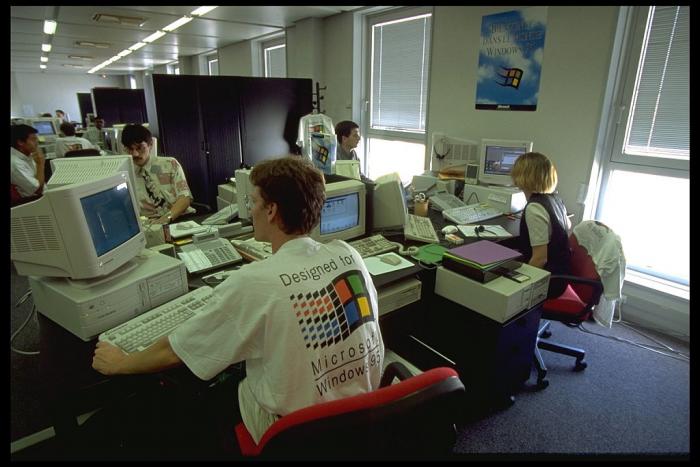By Petr Navovy | Social Media | January 3, 2024

It’s a massive oversimplification to say this, but it definitely feels like somewhere around the late 2010s, conspiracy theories shifted from being primarily a left-wing concern to being a right-wing thing. There have always been right-wing conspiracy theories, of course, but when I was growing up, the popular conception of conspiracy theories and conspiracists was often one skewed towards the left-ish side of the spectrum.
Then, somewhere along the way, it seemed like the most popular conspiracy theories shifted from things like, ‘The government is in cahoots with big business to suppress trade unions,’ (which, I mean…) and, ‘the CIA overthrew [X] government,’ (which, again, yeah…), to deranged stuff like, ‘the Democrats specifically are evil, but most Republicans are okay,’ and, ‘trans people wield a lot of power in society, for evil ends’.
The fact that these modern conspiracy theories often originate and spread on social media platforms owned by megalithic capitalist interests (frequently run by explicitly conspiratorial right-wing owners) obviously goes some way towards explaining this shift.
The characterisation of this shift is, to repeat, a massive oversimplification—especially when you consider the history of, for example, antisemitic conspiracy theories, which have historically straddled the traditional left-right divide—but there is something particularly galling about members of the elite pointing fingers at other elites in a ‘Spider-Man pointing meme’ fashion in an effort to distract attention from themselves (COUGH**Trump**COUGH).
I bring this up because I’ve seen a particular conspiracy theory making the rounds on social media recently, particularly on TikTok: the dead internet theory. The dead internet theory has been around for a little bit less than a decade, and was featured in a great article on the subject by Kaitlyn Tiffany in the Atlantic in 2021. In a nutshell, the dead internet theory is the idea that most of the internet is now mostly composed of non-human activity and content. Many of us are familiar with it to a degree—or at least with why it might have gained steam—even maybe without having a name for it; especially those of us who have been active on Twitter long enough to see it become the Musked-out shell of its former self full of bots and AI, or those of us who used to religiously read the AV Club, only to see it decimated by venture capital, the graveyard’s soil then salted by AI-generated ‘articles’.
The internet has always had sock puppet accounts aplenty, but, in its early days at least, for the most part, it could be seen as a network of connected computers, each with an actual human being sat at a keyboard in their home or an internet café, creating websites, communicating in chatrooms and forums, and writing articles. At some point, though, the theory says, the ratio of genuine human interaction to machine-created ‘content’ tipped. Take this video that was just making the rounds on Reddit, which takes a small look at the state of Twitter today:
The dead internet theory describes these phenomena and more, and then takes things further to say that this is all a co-ordinated effort by the powers that be—a psy-op of sorts. Like a lot of conspiracy theories, the dead internet theory gets at something real while also skewing things in often unhelpful ways. It’s an expression of a genuine and well-founded anxiety: the internet has been co-opted almost completely by powerful capitalist interests that have sanded down its edges and walled it off into silos designed only to sell you things, propagandise, and to gather data on you. When analysing things like this, conspiracy theories often point the finger at individuals. ‘If only we removed Bill Gates or Mark Zuckerberg from the equation, things would get better!’ That’s not to say that individuals can’t be powerful agents within that system, often helping to bring the system about in the first place, but it is the system itself that’s the problem.
The fact of the matter is that the economic system that we live under creates a fertile breeding ground for conspiracies. Everyone can see that something—well, a lot—is wrong, and so they look for explanations. And those explanations can turn ugly, or be manipulated for ugly ends. That’s because it’s an ugly world. In a free and open society with minimal injustice and inequality, it becomes very difficult indeed to turn people against one another and for toxic, hateful conspiracies to flourish. We don’t live in that society. We live under an oppressive and planet-destroying capitalism that offers minimal-to-no-hope for the majority.
The dead internet theory tries to explain how this system expresses itself on the world’s main communication tool. It gets some things right and some things wrong—though I’m not going to pretend to know the totality of which parts fall where! Mostly, it’s trying to describe just another manifestation of the capitalist tendency to monopoly. The internet has been transformed from a strange and weird collection of user-generated material into an ever-decreasing number of advertising platforms and data-mining operations, and we’re all the poorer for it. Shame, really. Such potential, squandered.